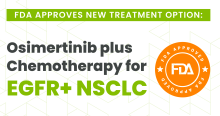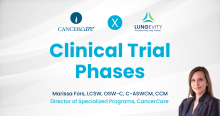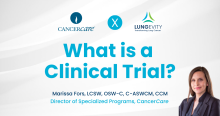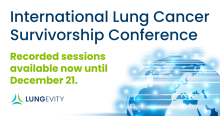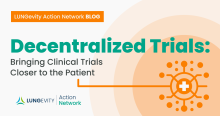How Can Patients and Researchers Design Clinical Trials Together?
Read time: 2 minutes. Traditionally, people associate getting involved in lung cancer research with enrolling in a clinical trial. But most don’t realize they can also partner with researchers behind the scenes and get involved in designing clinical trials. In the first of a three-part series, Rising Tide Foundation for Clinical Cancer Research has partnered with LUNGevity to understand the role people with lung cancer can play in developing clinical trials. Through panelist presentations and discussions, this video focuses on patient-centric endpoints, showcases this collaboration from the




